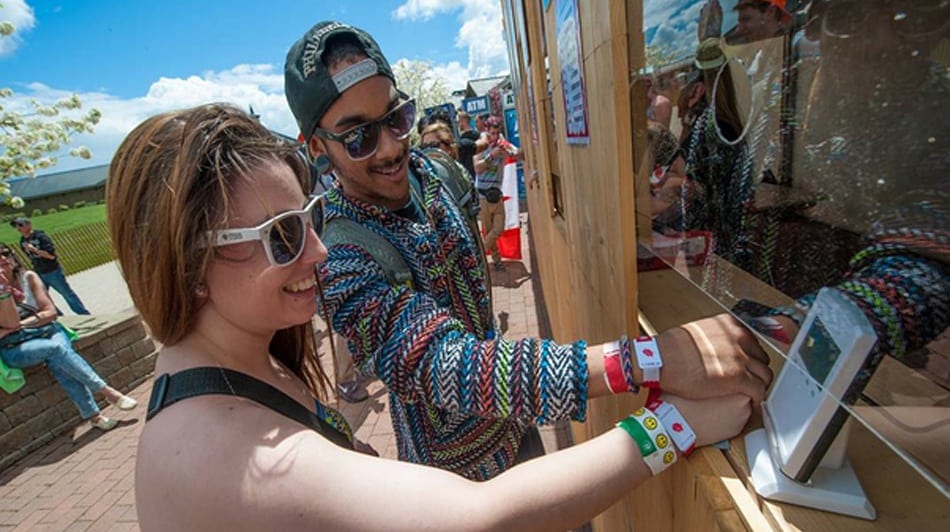For those living without a disability, the hugely important and complex task of making a major event disability-friendly might go unnoticed. It can be very easy to take accessibility for granted and to remain oblivious to the often subtle difficulties that make many events a challenge for those with disabilities.
Cherie Wren is the head of Disability Services at Dragon Con, Atlanta’s premiere pop culture convention which takes place every Labor Day weekend across five connected hotels in the city’s downtown area. Being very busy and vast in size, Dragon Con can be a slog for anyone to move around, but the event is well-known for being extremely disability-friendly, thanks in no small part to the tireless effort, compassion, and understanding that Cherie and her team bring to the challenge of accessibility.
“We are always trying to find better, quicker ways to help the people that need our services,” said Cherie, who joined the Dragon Con team almost 20 years ago. Cherie also does ADA (Americans With Disabilities Act) sensitivity training for Atlanta’s mass transit system MARTA, and she herself has Retinitis pigmentosa—a slow degeneration of the retina which has left her almost completely blind.
We caught up with Cherie and her team in the Sheraton Hotel at Dragon Con last month and learned a little about what it takes to run a truly accessible event and what you can do to better navigate some of the challenges that your patrons may face.
Have Staff Familiar with Disabilities
Understanding and sympathizing with the difficulties that face individuals with physical challenges is absolutely imperative to running a successful operation.
“A lot of our staff either have disabilities, already work with people with disabilities or have family members that have disabilities,” explains Cherie, who has been enlisting her 16-year-old niece Charlie to help out every year.
But Cherie believes that all staff should have some basic familiarity with the needs of their patrons with disabilities and admits that, while the Dragon Con staff and security are always improving, the permanent staff at the hotels and conference centers could do with additional training.
“In my experience, outside staff need a lot more ADA sensitivity training, and that can be as simple as knowing what questions to ask, how to work with somebody with a disability. Simple techniques that can make a huge amount of difference.”
Be Mindful of Hidden Disabilities
“Just because the person doesn’t look disabled doesn’t necessarily mean they aren’t. There are a lot of hidden disabilities,” Cherie explains.
Hidden disabilities are defined as those which aren’t immediately obvious to the eye, such as epilepsy, HIV/AIDS, bipolar disorder or diabetes. Any disability services operation should be mindful of these problems and aim to accommodate for them.
Using a combination of “hotel captains” (staff members tasked with ensuring patrons with disabilities get equal access to panels) and a complex sticker system, Dragon Con has fostered an awareness amongst its staff for hidden disabilities, and while some may not always get hands-on support, if there is a problem then it can be quickly identified and taken care of.
“For some people, all they need is a seat because they can’t stand for long periods. We need to make sure that we can prioritize them and deliver on their needs,” Cherie adds.
Keep Honing Your Operations
Cherie and her team believe that there is always room for improvement and that navigating the myriad of logistical challenges that come with an event spread across five hotels will probably never end.
“Every year, we’re looking for new problems,” notes Cherie. “What is it we need? Are the hotels being cooperative? You know, sometimes hotel staff isn’t, sometimes they are. So, what is it that we need to fix, like right now? Are there issues? We’re always evaluating and looking to deliver a better experience for the guests.”
“For example,” she continues, “one thing that’s shown up in past couple of years is people wanting a quiet space for their autistic son or daughter. But we don’t have the ability to have a quiet space. We’re just way too big. Every inch is used. But we do things like modify an end-of-row sticker with, say, ‘near door.’ So, if they’re in a large event and they start to have an issue, they can get out quickly. It’s not fair to the guests if somebody disrupts the event. But if they and their caregiver can get out quickly with as minimum disturbance as possible, there you go. It’s understanding what people need and being accommodating.”
…And Your Language
“I don’t even like the word disability!” exclaims Cherie. “I prefer the word ‘challenged’ because everybody’s got them. But handicap… ugh, that’s kind of a yuck word. It’s very dated.”
Always aim to be as mindful as possible with the language that you are using with anyone, but be mindful that what is considered acceptable terminology is continuously changing and that you have a responsibility to your patrons to keep on top of those changes.
If you are concerned that the language you are using might be a little outdated, please refer to the guidelines on the ADA website.
—
“We can have all the bells and whistles and toys and electronics that we can find, but unless we have people on the frontlines that know how to work with persons with disabilities—to communicate with them, to ask them how they can best assist them–then we still don’t have an accessible system,” Cherie advises.
The biggest takeaway from this article should be the emphasis placed on understanding. You need to have people on your team that are familiar with the problems facing patrons with disabilities, and always be on the lookout for ways that you can improve your logistics and your patrons’ experience for those with challenges.
Header image via Patrick Sun]]>


